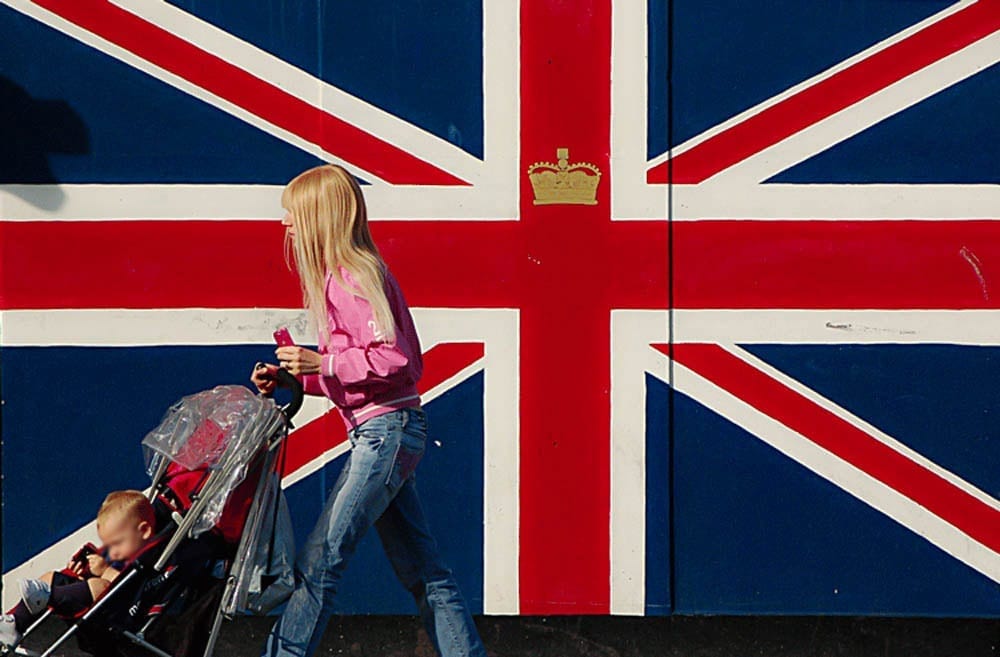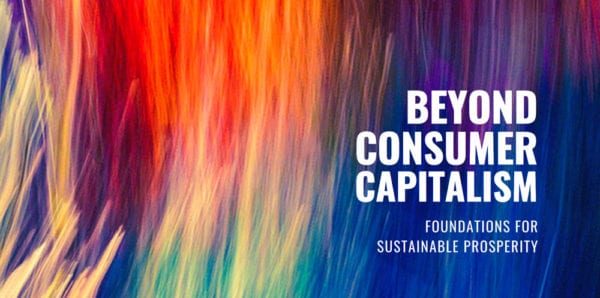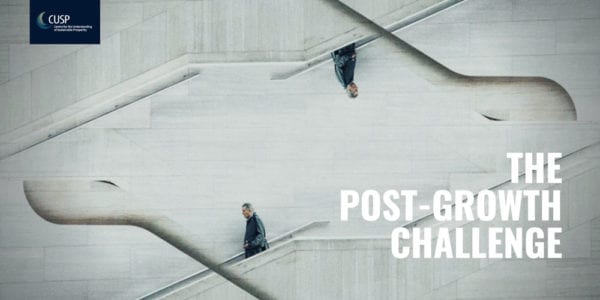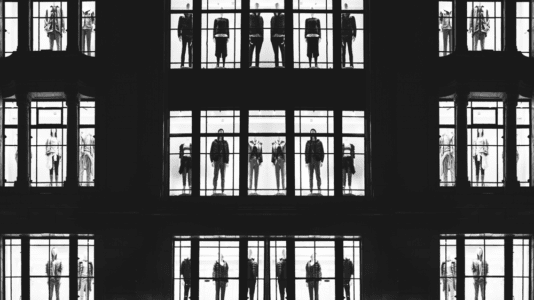Green, prosperous and fair: a vision for Europe’s future
After the most profound shake-up in decades, European politics stands at a pivotal point in its long history. With nationalist parties drawing support from communities who have been left behind and green parties benefiting from a huge upsurge of concern around climate breakdown and biodiversity loss, there is a unique opportunity, argues Tim Jackson, to build a new vision for Europe that is green, prosperous and fair. With a new political make-up comes a new possibility: a just transition to a sustainable Europe. (This piece is adapted from Tim’s chapter in DiEM25’s recently published A Vision for Europe.)

‘Rainforests are a long way from here’. This was the title of a paper published some years ago now by CUSP Deputy Director, Kate Burningham. The paper reported on a study which explored the environmental concerns of disadvantaged people. The title was a direct quote from one of the respondents in the study. It struck a real chord with me at the time. It stuck with me all these years because it was such a powerful metaphor for the distance between the enormous ecological challenges faced by the world – climate change, deforestation, the loss of biodiversity—and the very real concerns that shape the everyday lives of the poorest in society.
That message is as resonant today as it ever was. Rainforests are a long way from here. They’re a long way from the neglected English communities who voted to leave the EU. A long way from the ‘gilet jaunes’ protesting stealth taxation on the streets of France. A long way from the refugees arriving on their thousands along the southern and eastern borders of Europe. A long way from the lives of those who have taken them in. Talk to us about the limits of a finite planet, by all means. But our everyday reality right here and now is something vastly different. The streets are shabby, the shops are closing, the healthcare system is failing, and the environment is a wasteland frequented by the homeless and the dispossessed.
It’s impossible to talk about a green transition without acknowledging these uncomfortable truths. A green transition must be a just transition. A just transition can only start from where people are. It must speak to the poorest in society, those least responsible for ecological destruction and most deserving of change. It must promise them something better. It must offer a life worth living. We’ll make no progress against climate change without confronting the deep injustice still perpetuated by a hyper-financialised, neo-liberal consumerism that has haunted the European project and undermined its sense of value.
But this is also where the promise lies. The challenge of averting climate catastrophe is a formidable one. Weaning the European economy from its addiction to fossil fuels in the space of a generation is far from trivial. Building the architecture and the infrastructure for a new, renewable, regenerative economy means transforming the role of financial markets. It means claiming back the very meaning of the word investment from the grip of casino capitalism. Investment is not a bet laid down for the benefit of the few against the lives of the many, and in defiance of the health of the planet. Investment is our commitment to the future. It is our pledge to support our children and their children. Investment is our commitment to renew and to regenerate society.
Fighting climate change, re-building financial stability and confronting inequality go hand in hand. Courageous policy and relentless innovation are essential. But the dividends will be substantial: better jobs, stronger communities, safer schools, healthier lives; the potential to repair our broken vision of the good life and to rebuild the values that once connected us to each other and to the planet.
Rainforests are a long way from here. Behind the disillusion lies a sense of longing, a fear of loss, a desire for re-connection. This longing is most clearly expressed in Europe today by a younger generation. It finds its most eloquent expression in the school children striking for climate action. It is echoed by the civil disobedience of Extinction Rebellion and the Occupy movement. But it is remembered too by those whose courage forged the vision from which Europe itself was born. It resides in all of us. It is the common foundation from which we can build a genuine and lasting prosperity.
For at the end of the day, prosperity goes beyond material pleasures. It transcends material concerns. It resides in the quality of our lives and in the health and happiness of our families. It is present in the strength of our relationships and our trust in the community. It is evidenced by our satisfaction at work and our sense of shared meaning and purpose. It hangs on our potential to participate fully in the life of society.
Prosperity consists in our ability to flourish as human beings—within the ecological limits of a finite planet. The challenge for our society is to create the conditions under which this is possible. It is the most urgent task of our times.
A Vision for Europe
A version of this short essay by Tim Jackson appeared in the recently published DiEM25 edited collection: A Vision for Europe.
From the publisher’s website: “With contributions from some of the world’s foremost thinkers, artists and politicians covering the full spectrum of concerns for the future of the Union, A Vision for Europe presents realistic and viable alternatives to the mainstream barrage of dreadful prospects—a true vision for Europe.” Contributing authors are: David Adler, Marko Anđelić, Pamela Anderson, Renata Avila, Anthony Barnett, Rosemary Bechler, Franco Berardi, Noam Chomsky, John Christensen, Fabio De Masi, Brian Eno, Daniel Erlacher, James Galbraith, Ksenia Gerasimova, Bobby Gillespie, Alice-Mary Higgins, Olivier Hoedeman, Srečko Horvat, Sam Hufton, Tim Jackson, Katrín Jakobsdóttir, Leila Jancovich, Naomi Klein, Paul Laverty, Ken Loach, Caroline Lucas, Miltos Manetas, Lorenzo Marsili, Raoul Martinez, David McWilliams, Aleksandar Mirčov, Vlassis Missos, Jakob Mohr, Preethi Nallu, Rasmus Nordqvist, Xristina Penna, Ann Pettifor, Gerardo Pisarello, Adam Ramsay, Jaromil Roio, Bertie Russell, Jeffrey Sachs, Saskia Sassen, Vladimir Šestović, Elif Shafak, Nicholas Shaxson, Jonas Staal, Lyndsey Stonebridge, Danae Stratou, Yanis Varoufakis, Eyal Weizman, Slavoj Žižek, Shoshana Zuboff.




